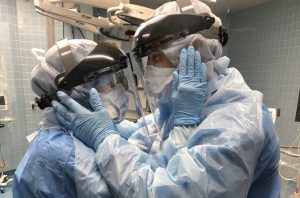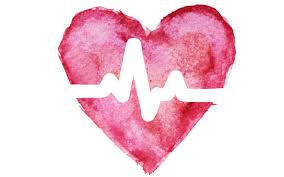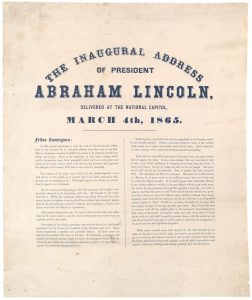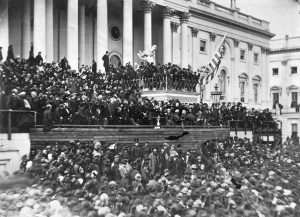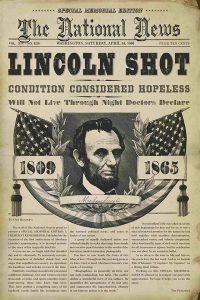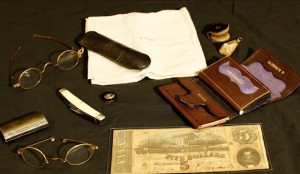‘Prayer Is Not Enough.’
The Dalai Lama on Why We Need to Fight Coronavirus With Compassion
This crisis shows that we must all take responsibility where we can. We must combine the courage doctors and nurses are showing with empirical science to begin to turn this situation around and protect our future from more such threats.
In this time of great fear, it is important that we think of the long-term challenges—and possibilities—of the entire globe. Photographs of our world from space clearly show that there are no real boundaries on our blue planet. Therefore, all of us must take care of it and work to prevent climate change and other destructive forces. This pandemic serves as a warning that only by coming together with a coordinated, global response will we meet the unprecedented magnitude of the challenges we face.
As human beings, we have the capacity to use our minds to conquer anger and panic and greed. In recent years I have been stressing “emotional disarmament”: to try to see things realistically and clearly, without the confusion of fear or rage. If a problem has a solution, we must work to find it; if it does not, we need not waste time thinking about it.
We Buddhists believe that the entire world is interdependent. That is why I often speak about universal responsibility. The outbreak of this terrible coronavirus has shown that what happens to one person can soon affect every other being. But it also reminds us that a compassionate or constructive act—whether working in hospitals or just observing social distancing—has the potential to help many.
[Text In Full]
‘Prayer Is Not Enough.’
‘Sometimes friends ask me to help with some problem in the world, using some “magical powers.” I always tell them that the Dalai Lama has no magical powers. If I did, I would not feel pain in my legs or a sore throat. We are all the same as human beings, and we experience the same fears, the same hopes, the same uncertainties.
From the Buddhist perspective, every sentient being is acquainted with suffering and the truths of sickness, old age and death. But as human beings, we have the capacity to use our minds to conquer anger and panic and greed. In recent years I have been stressing “emotional disarmament”: to try to see things realistically and clearly, without the confusion of fear or rage. If a problem has a solution, we must work to find it; if it does not, we need not waste time thinking about it.
We Buddhists believe that the entire world is interdependent. That is why I often speak about universal responsibility. The outbreak of this terrible coronavirus has shown that what happens to one person can soon affect every other being. But it also reminds us that a compassionate or constructive act—whether working in hospitals or just observing social distancing—has the potential to help many.
Ever since news emerged about the coronavirus in Wuhan, I have been praying for my brothers and sisters in China and everywhere else. Now we can see that nobody is immune to this virus. We are all worried about loved ones and the future, of both the global economy and our own individual homes. But prayer is not enough.
This crisis shows that we must all take responsibility where we can. We must combine the courage doctors and nurses are showing with empirical science to begin to turn this situation around and protect our future from more such threats.
In this time of great fear, it is important that we think of the long-term challenges—and possibilities—of the entire globe. Photographs of our world from space clearly show that there are no real boundaries on our blue planet. Therefore, all of us must take care of it and work to prevent climate change and other destructive forces. This pandemic serves as a warning that only by coming together with a coordinated, global response will we meet the unprecedented magnitude of the challenges we face.
We must also remember that nobody is free of suffering, and extend our hands to others who lack homes, resources or family to protect them. This crisis shows us that we are not separate from one another—even when we are living apart. Therefore, we all have a responsibility to exercise compassion and help.
As a Buddhist, I believe in the principle of impermanence. Eventually, this virus will pass, as I have seen wars and other terrible threats pass in my lifetime, and we will have the opportunity to rebuild our global community as we have done many times before. I sincerely hope that everyone can stay safe and stay calm. At this time of uncertainty, it is important that we do not lose hope and confidence in the constructive efforts so many are making.’
#
“To bind up the nation’s wounds.”
Abraham Lincoln
February 13, 1809-April 15, 1865
Fondly do we hope — fervently do we pray — that this mighty scourge of war may speedily pass away. Yet, if God wills that it continue, until all the wealth piled by the bond-man’s two hundred and fifty years of unrequited toil shall be sunk, and until every drop of blood drawn with the lash, shall be paid by another drawn with the sword, as was said f[our] three thousand years ago, so still it must be said “the judgments of the Lord, are true and righteous altogether”
With malice toward none; with charity for all; with firmness in the right, as God gives us to see the right, let us strive on to finish the work we are in; to bind up the nation’s wounds; to care for him who shall have borne the battle, and for his widow, and his orphan — to achieve and cherish a lasting peace among ourselves and with the world. to do all which may achieve and cherish a just, and a lasting peace, among ourselves, and with the world. all nations.
[Endorsed by Lincoln:]
Original manuscript of second Inaugeral presented to Major John Hay.
A. Lincoln
April 10, 1865
This image of Lincoln delivering his second inaugural address is the most famous photograph of the event. Lincoln stands in the center, with papers in his hand.
The content in Lincoln’s pocket when he was shot by a confederate sympathizer. The items were kept from the public for 111 years. Note: the currency is confederate, thought to be a souvenir.
